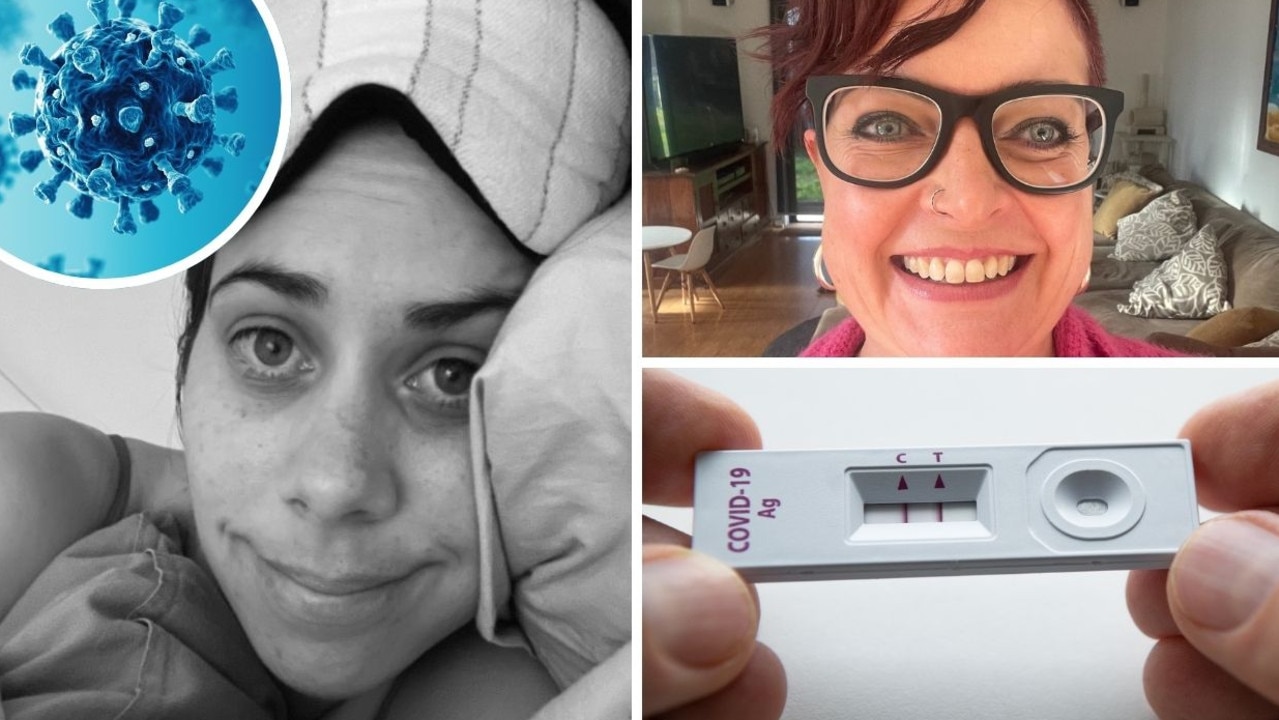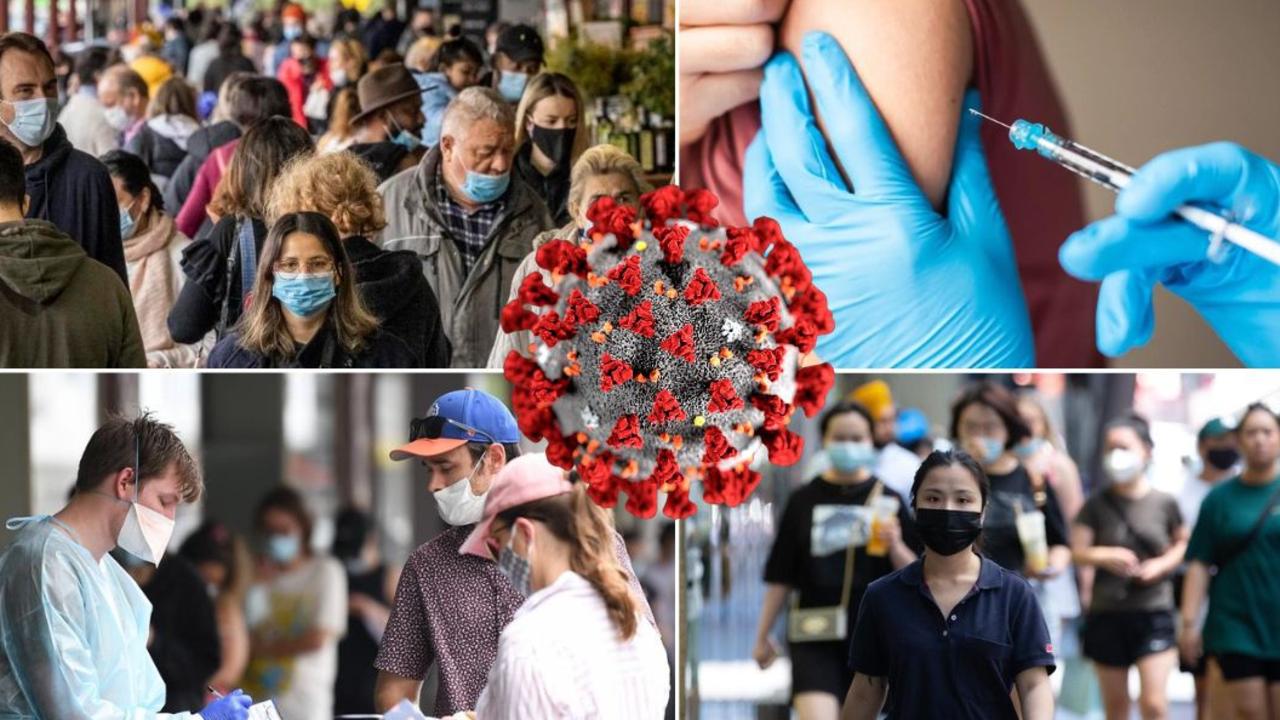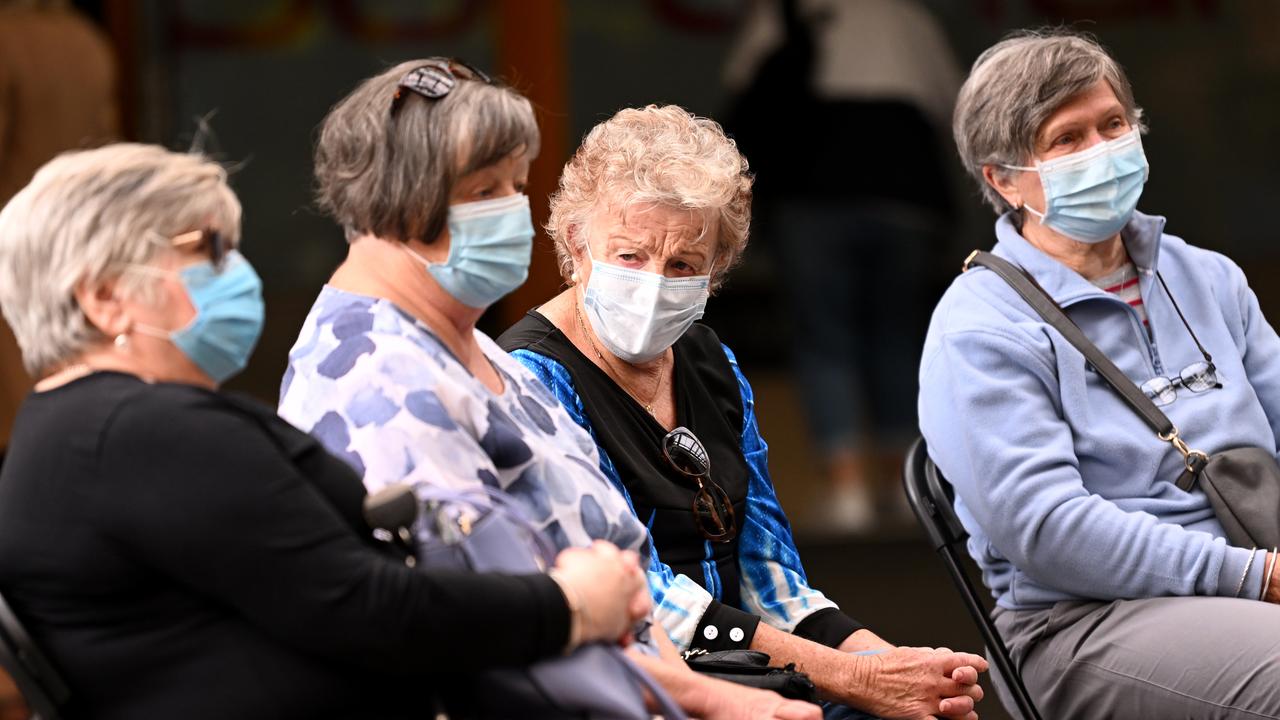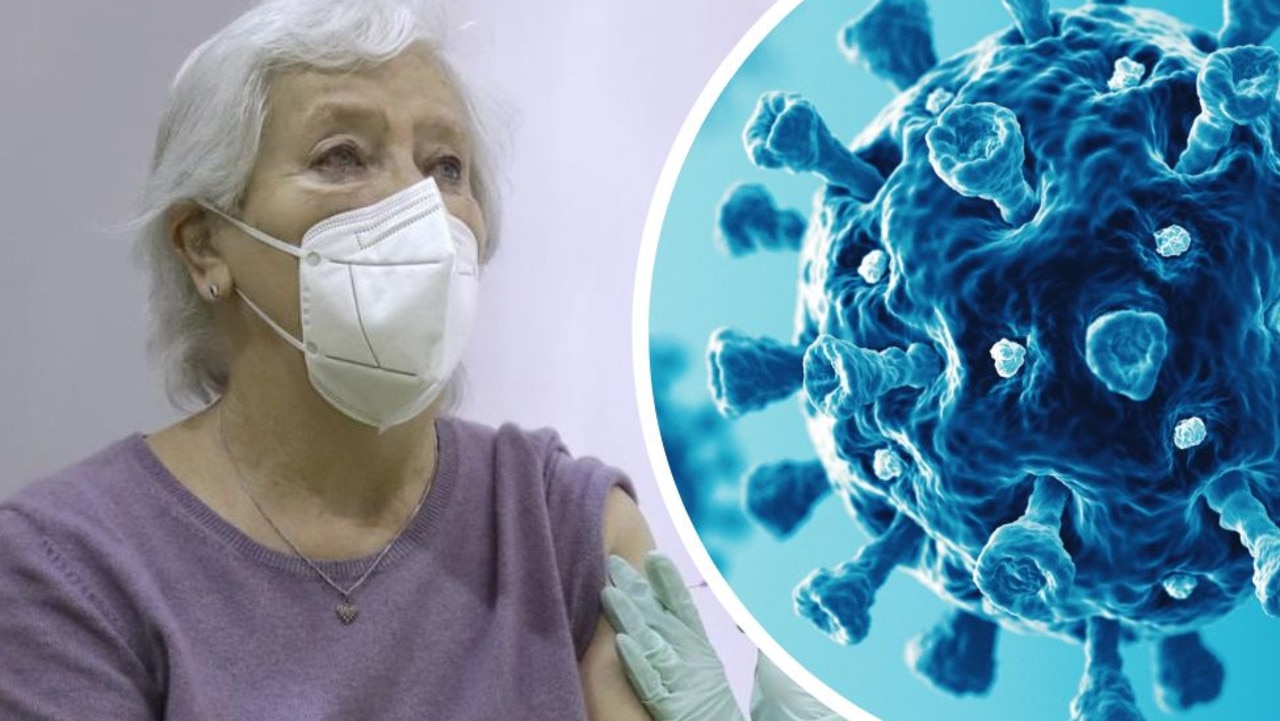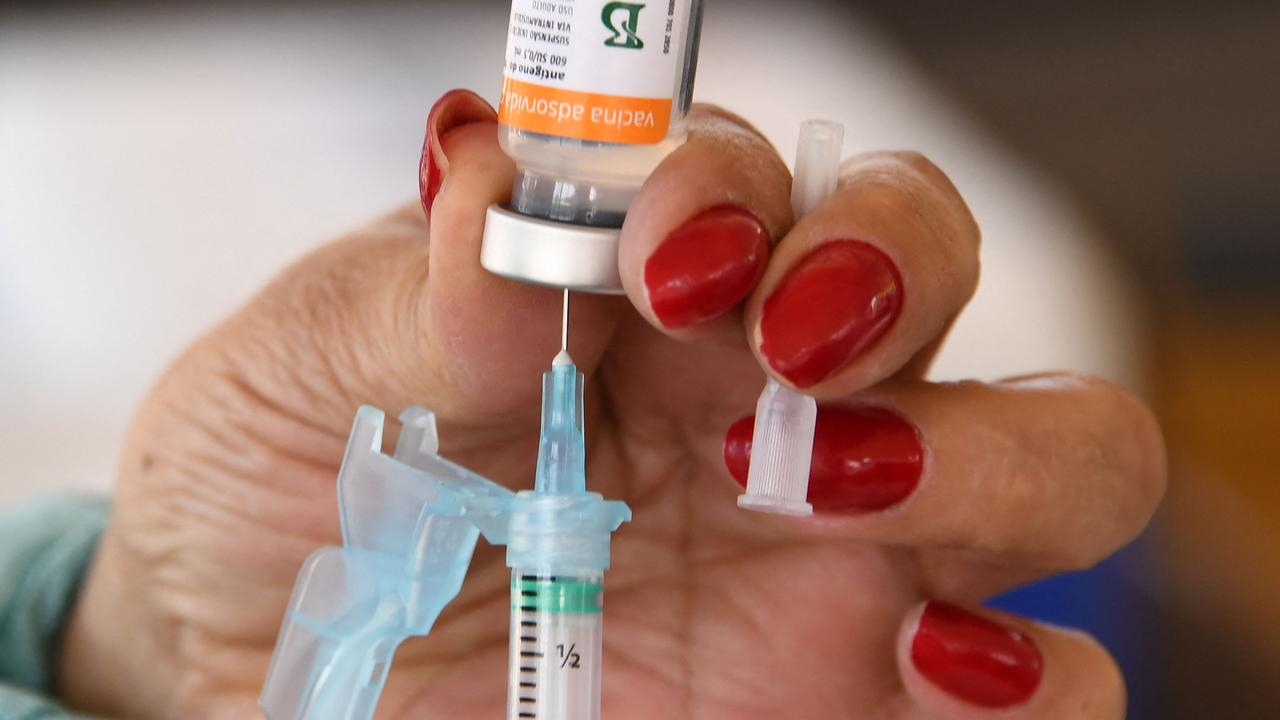Aged care jabs incomplete as PM Scott Morrison vaccinated 110 days ago
Since Scott Morrison got his Covid jab, only 64 per cent of aged care residents nationally have been fully vaccinated despite previous promises made.
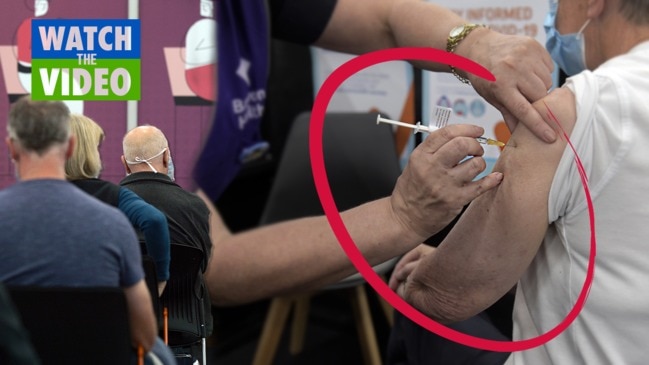
Coronavirus
Don't miss out on the headlines from Coronavirus. Followed categories will be added to My News.
In the 110 days since Prime Minister Scott Morrison got his Covid jab only 64 per cent of aged care residents nationally have been fully vaccinated against the pandemic virus.
Originally the government promised all aged care residents and staff would be vaccinated by Easter.
More than 1,500 residents in 21 facilities have received no vaccine at all, the health department told Senate Estimates.
It is hoped residents 18 of these facilities will get their first vaccine in the next few days.
In one facility, not a single resident has agreed to have the vaccine, and in the other two a gastro outbreak has stalled the vaccine rollout accroding to department of health officials.
The data was finally released after the department earlier today told the Senate it did not know how many residents in Victoria had been given two doses of vaccine or how many aged care workers had been vaccinated.
Department officials revealed they rely on a daily Tweet from the Victorian Government to find out whether there have been any new cases of Covid-19 in aged care facilities in the state.

Aged Care Minister Richard Colbeck said the government won’t know how many of the 230,000 aged care workers have been vaccinated until a new tracking system goes live on Friday.
The federal health department also does not know how many Victorian aged care workers have received a Covid-19 vaccine and is working with the industry to get it to report the numbers.
The Senate has been told nationally 38,708 aged care workers received a first dose of a Covid-19 vaccine when there were shots left over from the toll out to aged care residents.
More than 31,610 of these people have also received their second jab, the Senate has been told.
But it is unknown whether the vast majority of aged care workers have received any dose of the vaccine because they have been told to visit their GP or a state vaccination clinic for their jab.
“The question of when we will know definitively …it’s a matter of having the systems in place,” associate health department secretary Caroline Edwards told the Senate.
MANY VIC AGED CARE RESIDENTS NOT VACCINATED
Only 57 per cent of aged care residents in Victoria have received two doses of the Covid-19 vaccine leaving the rest exposed to the Indian variant sweeping through the state.
Studies form the UK have shown Covid-19 vaccines are only 33 per cent protective against Covid-19 infection after just one dose.
After two doses the Pfizer vaccine is 88 per cent protective and the AstraZeneca vaccine just over 60 per cent protective against the new variant.
Associate secretary of the Department of Health Caroline Edwards told Senate estimates 44,331 Victorian aged care residents had received a first dose of the vaccine and 25,300 had received two doses.
Initially the department said it did not know the answer to that question but advice was rushed through to bureaucrats fronting a Senate Estimates committee.
The department told the Senate many aged care residents had multiple illnesses or were at the end of their life and had opted not to get vaccinated for these reasons.
Earlier the Minister for Aged Care Senator Richard Colbeck said he did not know how many aged care workers had been vaccinated and his department is asking the providers to survey their workers to find out.
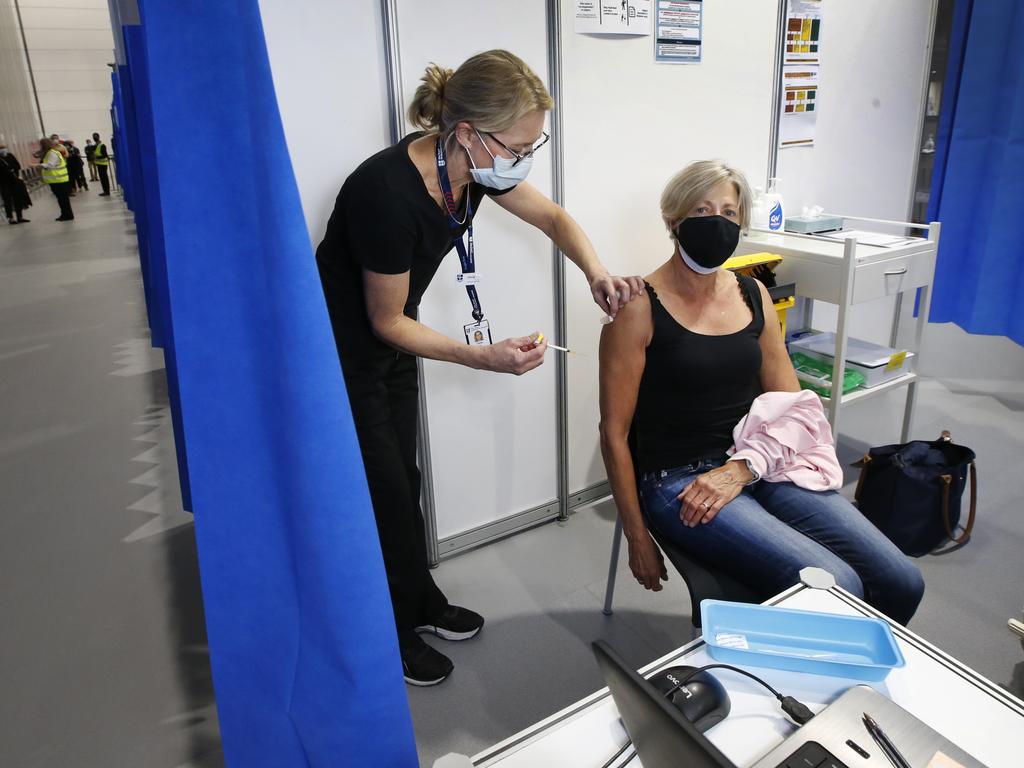
It is not compulsory for aged care workers to be vaccinated but an expert government committee will consider whether to change this rule later this week.
The Senate has been told nationally 38,708 aged care workers received a first dose of a Covid-19 vaccine when there were shots left over from the toll out to aged care residents.
More than 31,610 of these people have also received their second jab, the Senate has been told.
But it is unknown whether the vast majority of aged care workers have received any dose of the vaccine because they have been told to visit their GP or a state vaccination clinic for their jab.
“The question of when we will know definitively … it’s a matter of having the systems in place,” Ms Edwards told the Senate.
EXPERTS CALL FOR MAJOR CHANGE
It comes as experts said the gap between the first and second dose of the AstraZeneca vaccine must be cut from 12 to eight weeks to protect Melburnians against the Indian variant.
And the possibility of mixing and matching doses of Pfizer and AstraZeneca vaccines should also be considered after evidence emerged from Spain that this produced a stronger immune response to the pandemic virus.
Already an aged care worker in Melbourne who had just a single dose of the Pfizer vaccine has been infected with the Indian variant, reinforcing one dose is not enough.
Research released last week showed both the Pfizer and AstraZeneca vaccines were only 33 per cent effective against the Indian variant circulating in Melbourne.
“After the second dose Pfizer’s about 88 per cent effective and AstraZeneca, 60 per cent,” Melbourne University infectious diseases expert Professor Fiona Russell said.
Longer term, the effectiveness of the AstraZeneca vaccine against the variant was likely to improve as it needs more time than the Pfizer jab to peak, she said.
The research, by Public Health England which was yet to be peer reviewed, only looked at effectiveness at two weeks after the second jab.
“If it was me I would be recommending for people in aged care bringing forward the second dose of the AstraZeneca vaccine to eight weeks,” she said.
University of Sydney infectious diseases physician Professor Robert Booy agreed.
“One dose is not going to be enough if the Indian variant gets out of control in Melbourne,” he said.
“If we want to do something about it, one thing we could do is to move the AstraZeneca booster up to eight weeks,” he said.
A UK study showed the optimum gap between doses was 12 weeks but it also worked well after an eight week gap.
“So, yes, it does look better after 12 but it looks moderately good after eight,” he said.
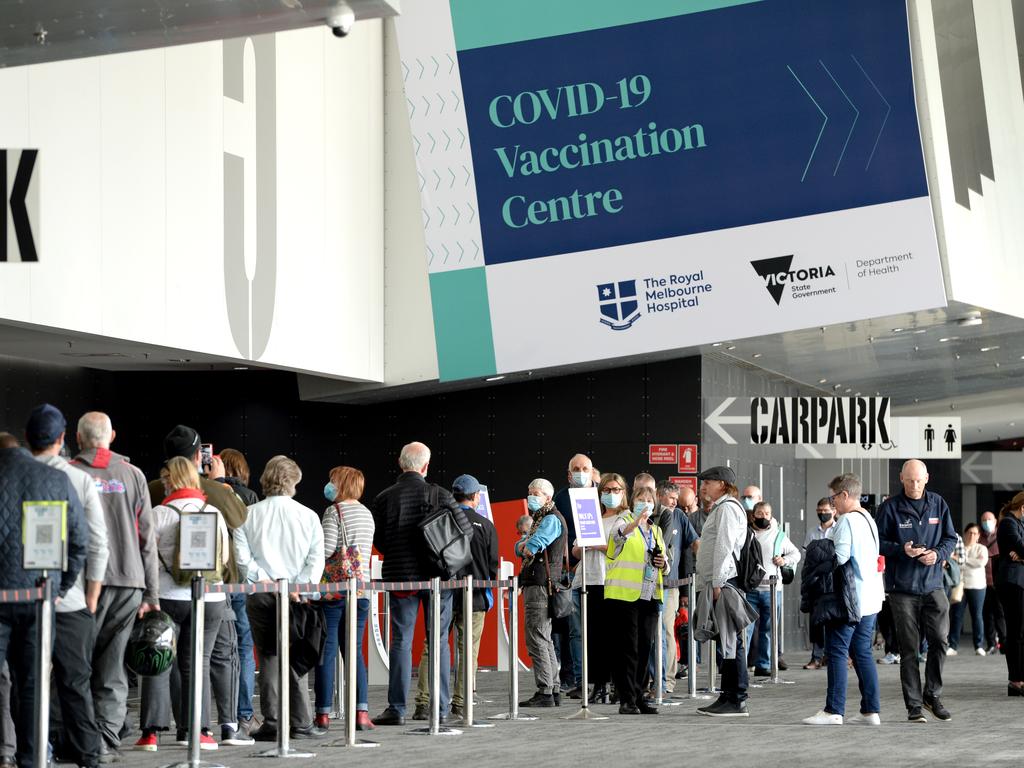
Prof. Booy said the federal government could also move more Pfizer doses into Victoria because that vaccine only requires a three-week wait between dose, he said.
Fast tracking the Moderna vaccine as well as mixing and matching vaccines were other options.
New research from Spain, which has yet to be peer reviewed, showed dosing someone with AstraZeneca first and then eight weeks later giving them a Pfizer vaccine produced more antibodies than giving them two doses of AstraZeneca.
Several countries in Europe are already advising younger people given a first dose of AstraZeneca vaccine to have Pfizer as their second dose because of the risk of rare blood clots.
Next week a bigger UK study where vaccine brands were mixed and matched is expected to report.
The UK study has already found people who mix and match vaccines are more likely to experience side effects.
“If you give AstraZeneca then Pfizer or Pfizer than AstraZeneca, you’ll get a higher side effects rate. For example, fever and chills would be between 30 and 40 per cent, whereas if you give to have the same fever and chills are between 10 and 20 per cent,” Prof. Booy said.
Both experts urged all Australians to get vaccinated as quickly as possible with whatever vaccine was available.
The vaccines that we’ve got in Australia are essentially the same in terms of effectiveness Prof. Russell said.
“Don’t delay, get your shot, whatever is offered to you, get in now,” she said.
“Vaccines aren’t something to sort of like handbags, you don’t go sort of shopping for the best brand. The two vaccines are equally effective,” she said.
More Coverage
Originally published as Aged care jabs incomplete as PM Scott Morrison vaccinated 110 days ago





